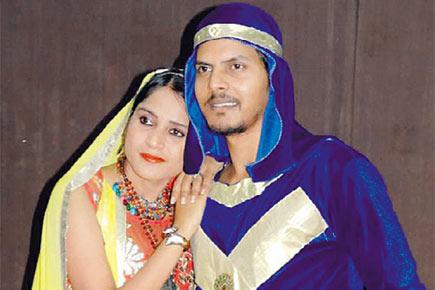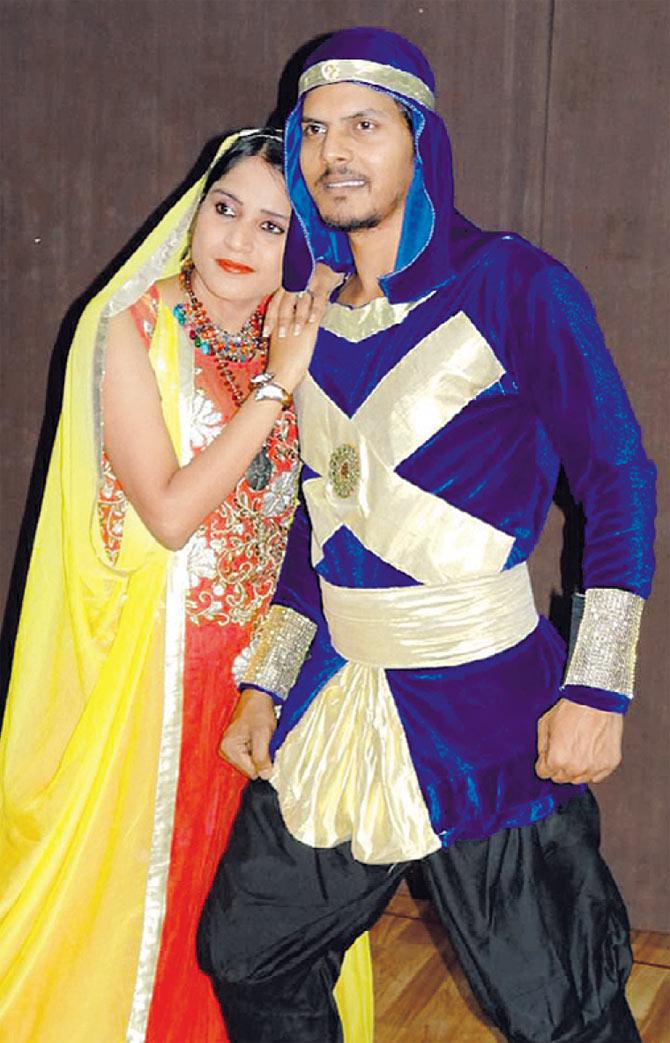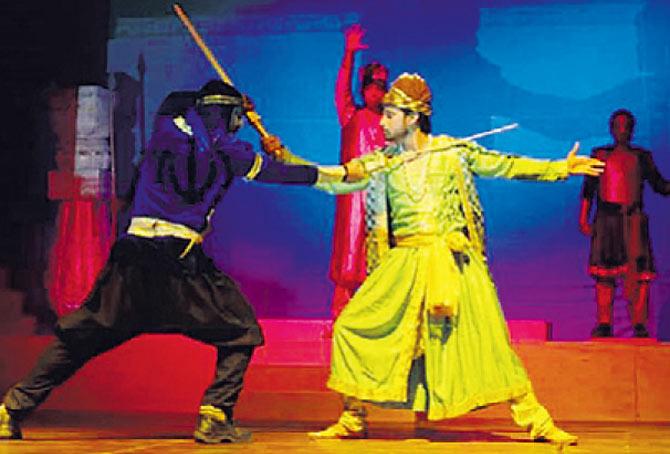Celebrate Persian theatre with a group of actors who will be staging Agha Hashar Kashmiri’s Urdu adaptation Rustom-O-Sohrab, a story from Firdausi’s monumental epic, Shahnama

This Sunday, transcend into the world of Persian warriors and Urdu poetry as you witness a tragic battle between the legendary fighter Rustom and his son, Sohrab – a story that is a part of Firdausi’s epic Shahnama. The play, titled Rustom-O-Sohrab (based on the Urdu adaptation by the renowned playwright Agha Hashar Kashmiri) has been directed by the National School of Drama graduate, Imtiaz Ahmed and will be performed by his theatre group, Pehal Rangmanch.
ADVERTISEMENT

Prachi Beniwal and Sohan Dev in Rustom-O-Sohrab
“This is our way of paying tribute to Parsi theatre. Parsi theatre is the first Indian modern commercial theatre and their plays have always been rich in terms of social, moral and political viewpoint. The most attractive and unique aspect of Parsi theatre is its style of performance that contains poetic dialogues, rhythm, taal, postures, gestures and expressions,” shares Ahmed.
The journey of Parsi rangmanch
According to Ahmed, the Parsi theatre has its origins in mid-19th century when Persian traders would travel from one place to another with their drama groups, which were later called the Parsi theatre company. This theatre also dominated Mumbai’s arts and cultural scene for many years post India’s Independence. However, the staging of Persian musicals and epics reduced over time. “Many Parsi theatre companies shifted focus to the film industry and used the same musical and performance style in cinema,” reveals Ahmed.
Revival time
With a cast of over 15 members, this two-and-a-half hour-long play also features dancers performing Persian belly dance along with various Indian Classical dance forms to live music. The group has been performing this play since 2009 in many parts of North India.

A still from the play
However, this show marks their debut in Mumbai. “We’ve performed in Jaipur, Jodhpur, Udaipur, Chandigarh and Delhi, among others. Since Mumbai has the largest community of Parsis, we wanted to pay a tribute to them through this play. Moreover, this play is also for those who wish to understand what Parsi rangmanch is all about.”
 Subscribe today by clicking the link and stay updated with the latest news!" Click here!
Subscribe today by clicking the link and stay updated with the latest news!" Click here!






